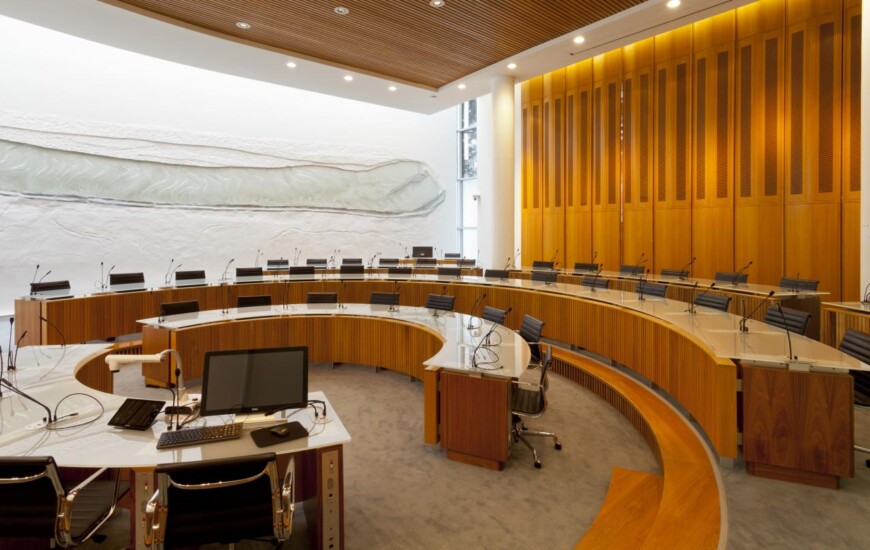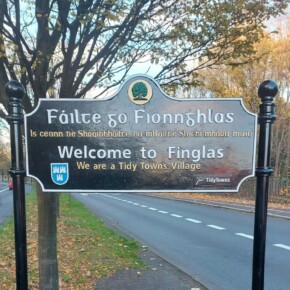60 families at risk of homelessness following cuts to homeless scheme
Mike Finnerty 23 Jul 2025
In a recent interview with the Irish Examiner, Taoiseach Micheál Martin said he hoped for his government to restore town councils as a way of restoring trust in local government.
The issue of local government has been a thorny one for the new government, which took office in January, with repeated accusations from both government and opposition alike about the Department of Housing, specifically, pulling rank on democratically elected councils and making big decisions without the input of elected councillors.
The Taoiseach told the Examiner, “democracy matters and it’s also an opportunity for people to have their first taste of representation.”
It appears that Martin’s colleagues in Cabinet did not read the interview or were on holiday that particular day, as this week saw the controversial move by the Department of Housing to ignore Fingal County Council’s calls to properly fund the tenant-in-situ scheme.
Fingal County Council announced this week it was going to be pausing applications for the tenant-in-situ scheme after it ran out of its allocated budget of €20 million for the year.
In June, Dublin City Council announced it would similarly be pausing the same scheme for the foreseeable future and called on central government to fund the scheme.
In recent editions of Northside People, this publication has explored the seeming indifference of Minister for Housing James Browne towards local authorities, and this latest move from the Minister confirms that he will continue with his scorched earth policy of making unilateral decisions.
Local Sinn Féin TD Louise O’Reilly noted that Fingal County Council’s budget for the tenant-in-situ scheme stood at €39.9 million in 2024, and was cut nearly in half, to €20 million for this year.
At the halfway point of the year, the money for the scheme has run out, with no government rescue in sight.
“Fingal County Council has stated that their entire budget for the year has already been used, therefore they have had to close the scheme and 60 families who had previously been assured their homes would be purchased under the scheme to save them from eviction, have now been told they will have to go into emergency accommodation.”
O’Reilly noted that 60 families having to enter emergency accommodation as a result of the funding lapse is a “scandal.”
The most recent set of homeless figures published by the Department of Housing found that 15,747 people availed of homeless services in Ireland in May, breaking the previous record high.
Of that figure, 11,323 are in Dublin, enough to fill Tolka Park twice over.
O’Reilly noted that more families are homeless than ever, with families being homeless for 6 months or longer becoming increasingly common.
“There is a huge backlog of people who desperately need access to housing, and it is growing rapidly” she noted.
“The government is not merely ‘failing’ to take adequate steps to solve this crisis. On the contrary, this government is actively cutting funding for crucial anti-homelessness initiatives such as the Tenant-in-Situ scheme.”
In this particular context, O’Reilly said, “to cut funding at all, never mind to halve it, at a time of record long-term homelessness, is unconscionable and inexcusable.”
“The government has essentially told the people of Fingal loud and clear – it will not protect renters, and it is not interested in combating homelessness in the area.”
The Sinn Féin TD said the impact of the cuts are plain to see; 60 families, who were availing of supports from Fingal County Council, will now be forced to navigate the increasingly precarious private rental market.
“Even with supports, families cannot manage to afford housing and they will, from there, be forced into emergency accommodation.”
Calling the cuts “heartless,” she said it made no sense to cut Fingal County Council’s “only” homelessness prevention tool.
“The cuts will add to the figure of almost 5,000 children growing up in material deprivation, hotel rooms, hostels, Airbnbs and makeshift emergency accommodation centres.”
“This government have been warned time and time again that it is much harder to get people out of long-term homelessness than it is to prevent them from becoming homeless in the first place.
“That this government has abandoned the people of Fingal so readily and so purposefully in this manner is a scandal,” she said.
The reason for the government cutting funding to homelessness services appears to be in line with the government’s philosophy of allowing the free market to have more of a say in the housing sector, an approach which was favoured under Fine Gael when Eoghan Murphy was Minister for Housing between 2016 and 2020.
Murphy’s policies are widely regarded as having contributed to Fine Gael’s poor 2020 election results and forcing them into a coalition with Fianna Fáil off the back of a strong Sinn Féin campaign, which hammered on the lack of housing in Ireland.
In the first six months of this government, the Department of Housing seems determined to repeat Murphy’s policies in the housing market, which call for greater investor participation in the housing market and cutting funding to local services.
Last week’s lead story in the Northside People saw clear tension between Fianna Fáil and Fine Gael councillors on Dublin City Council over the issue of Minister Browne.
Fianna Fáil councillors previously voted to criticise Minister Browne for cutting funding to the tenant-in-situ scheme at a May meeting of Dublin City Council, but pointedly abstained from a motion which criticised Browne’s new plans to reduce apartment sizes.
It was reported that local Fianna Fáil councillor Deirdre Heney took exception with Fine Gael’s Lord Mayor Ray McAdam for allowing a Labour and Green motion, which explicitly criticised Minister Browne, to be heard as an emergency motion at a meeting of Dublin City Council.
Under council rules, it is at the discretion of the Lord Mayor what emergency motions are heard, and Mayor McAdam made the decision to hear a motion which explicitly criticised Minister Browne.
Heney remarked at the meeting, ”I hope this isn’t what you’re going to be doing as a chair, putting your name to motions based on stuff that you hear.”
She told McAdam, “your name is on the motion – I just hope that emergency motions, signed by you, based on media reports, isn’t what we have to look forward to.”
McAdam, a political ally of Minister for Finance Paschal Donohoe, appeared to take a calculated gamble in shifting blame for cuts to social housing schemes to Fianna Fáil, who control the Minister for Housing brief as well as the Public Expenditure brief.
The brewing tensions between Fianna Fáil and Fine Gael are likely to boil over when it comes time to draw up the Budget; rumblings from the Taoiseach and Minister Donohoe in recent weeks indicate that the upcoming Budget is likely to be a tough one.
Both Martin and Donohoe have made it clear there will be no cost-of-living measures in this year’s Budget (despite the fact the crisis is no closer to ending), and that tough decisions will have to be made in order to balance the books.
Sinn Féin leader Mary Lou McDonald said in the Dáil this week that government promises to tackle the cost-of-living crisis have “disappeared like snow off a ditch.”
The government’s excuse is that the economic uncertainty brought about by Trump’s tariffs is a reason to tighten the belt, and in this context, cutting funding to local government services is a difficult but necessary measure.
Speaking to Northside People in early 2024, local Social Democrats TD and acting leader Cian O’Callaghan told this publication that there is “frustration” on the doorsteps that local democracy and government services don’t work for them like they did prior to the gutting of local government services in 2014.
“When I speak to people on doorsteps, there is a genuine sense of frustration that local government is so weak here. There is a real gap when it comes to transport or housing. When you compare us to other European countries, we have our hands tied behind our backs.”
“We have a strong economy now, but a poor implementation of services; there is a real gap in terms of the potential that Ireland could be providing to its people, and that starts with having a strong local government.”











